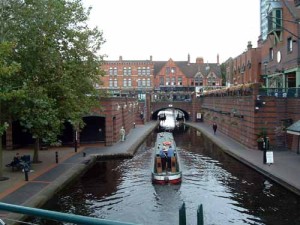By Andy Goff.
This might be a little hard to get a handle on so, remember, a Brit taking a holiday abroad is creating an import (bad for the economy) whilst a visitor coming to the UK is creating an export (good for the economy).
Following on from David Cameron’s 12th August 2010 speech on Tourism in which he said, “For too long tourism has been looked down on as a second class service sector. That’s just wrong. Tourism is a fiercely competitive market, requiring skills, talent, enterprise and a government that backs Britain. It’s fundamental to the rebuilding and rebalancing of our economy.” a report has been released by John Penrose MP, Minister for Tourism and Heritage, in which the Government has set itself a target of 4 million extra visitors to the UK over the next four years.
It contains important new statements on visas, the welcome given upon arrival and the importance of the tourism industry as a generator of “export” jobs.
On visas, it identifies that there is a problem. The European Tour Operators Association’s (ETOA) research indicates that 20% of all prospective clients are put off making a visit to Britain because of the visa process.
The prospect of completing a visa application is daunting. Someone wanting to come to the UK from, say, China has to make an appointment at a visa processing centre (which can be 500 miles away), complete a form in English (not just a foreign language, but a foreign script), be photographed and fingerprinted (a process associated with criminality) and then interviewed; they are then charged £70, with no guarantee of being granted a visa.
This is a dire first impression. There is a perception of arrogance. “What is there to like about the UK visa process?” wrote an agent in the Middle East, “Long queues, delays in paperwork, costly, too short working-hours; the attitude of the staff makes the applicant feel that they are doing him a big-time favour by accepting or even considering his application.”
The policy does not address the biggest problem affecting inbound tourism. If you are a company based here trying to sell the UK abroad, you suffer a huge competitive tax disadvantage.
Most visitors coming to this country from long-haul markets (such as North America or Asia) buy their holidays through tour operators. In this country, they are taxed under the Tour Operators’ Margin Scheme (TOMS). TOMS is applied to the margin between the cost of the components and the price charged to the consumer.
This margin is not profit. It contains everything not directly supplied by another company. All in-house supplies and all staffing are taxed under TOMS, as are agents’ commissions, marketing, sales costs. These expenses are the process of adding value. TOMS is thus a levy on the investment made in order to assemble, sell and deliver visitors to the UK. For a long-haul operator, it is equivalent to a corporation tax of 800%.
If a company is based outside the EU, TOMS it is not collectable and so not paid. Thus nearly all incoming operators that sell to consumers are now based off-shore thus transferring jobs and revenue away from the UK.
Conversely, as this tax is on “services supplied in the EU”, all non-EU holidays sold in the UK (say, to Turkey or to Florida) are untaxed. Thus TOMS is a tax on exports, and grants tax-free status to our tourism imports.
For a UK based company it is overwhelmingly more sensible to invest in selling non-European holidays, than to try and sell a UK holiday to a visitor.
This not a problem to do with the level of VAT, but the way in which it is applied to exports. We desperately need to attract visitors to this country. But the process of doing so is subjected to a punitive level of taxation.
Tom Jenkins, Executive Director of ETOA, says: “The Prime Minister has previously talked about making the UK tax competitive. That idea must embrace tourism.”
“There should be no VAT on exports which are used abroad. Tourism is an export but the creation of holidays in the EU for visitors from outside the EU is subject to VAT under TOMS. That is different from every other type of export and it’s clearly disadvantageous to our inbound tourism. “
“If the Government is serious about encouraging more people to come here, he needs to go to Brussels and convince the other member states to reform TOMS because there is a massive disincentive on EU-based companies promoting EU-based holidays.”
Visitor numbers are expected to increase next year with the Olympic Games in London; although there are some concerns that this may actually cause numbers to decline due to accommodation rates increasing.
It is, as yet, unclear how Birmingham will benefit from these government plans but what is clear is that the city needs to up its game more than it has in the past; a rather daft campaign aimed at Americans.



